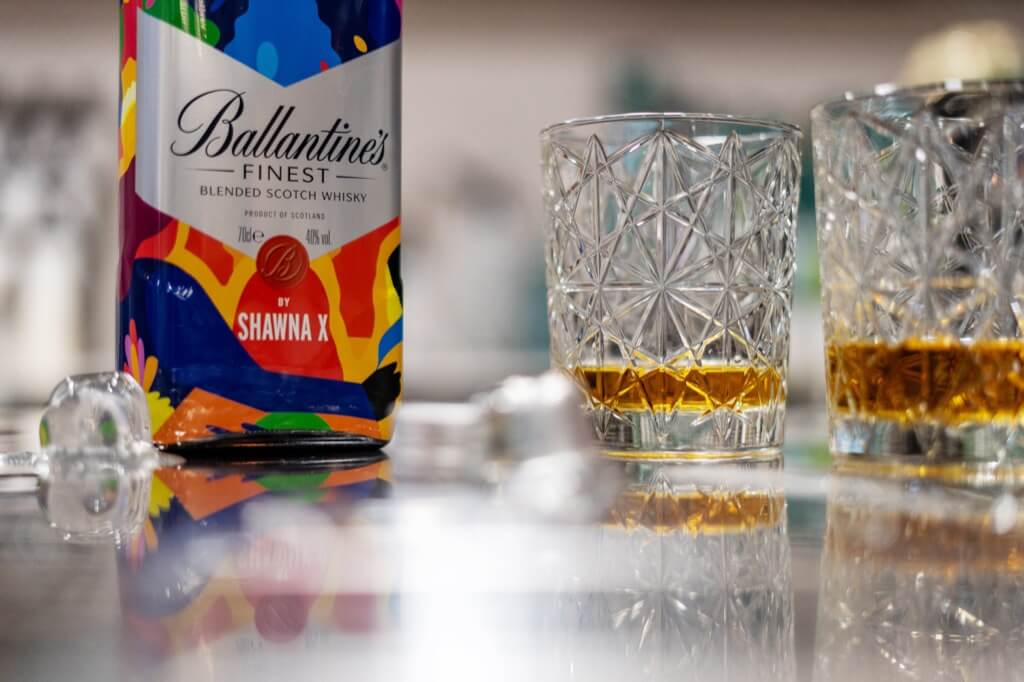With approximately 140 single-distillery brands, the spectrum of flavors and stories is vast. Yet, understanding Scotch whisky extends beyond mere numbers. Factors like terroir, innovative production techniques, aging processes, and the influence of critics and limited editions all contribute to the rich tapestry of Scotch whisky brands.
The concept of a single malt brand, where whisky is bottled and sold under the distillery’s name, was revived in the 1960s with brands like Glenfiddich, Balvenie, Glenfarclas, and Macallan. While most single malt distilleries have become brands in their own right, some distilleries, like Balmanech, Mannochmore, and Allt-á-Bhainne, don’t bottle their whisky. These are either blended or occasionally seen as independent bottlings. As of the last count, there were about 140 single distillery brands, derived from the 146 distilleries in Scotland, with more being planned.
Blended whisky accounts for 90% of global whisky sales. Brands like Johnnie Walker, Bell’s, and Dewar’s have shaped the modern whisky industry. Counting all the blended whisky labels is a formidable task, considering the continuous emergence of new brands and the revival of old ones. For instance, Label 5 is very popular in France, while Old Parr enjoys popularity in Columbia. Master of Malt stocks around 100 different blended whisky brands, reflecting the diversity within this category.
Independent bottlers like Gordon & MacPhail have played a significant role in the Scotch whisky landscape. They often release unique single malts, frequently aged in a single cask. Some, like That Boutique-y Whisky Company, have gained widespread recognition. Additionally, many independent bottlers have their brands of blended whisky. The number of independent bottlers is difficult to pinpoint, but Master of Malt stocks around 75 different ones.
Terroir in Scotch Whisky Production
The concept of terroir, often associated with wine, is equally significant in Scotch whisky production. Terroir refers to the environmental factors, including geography, climate, and soil, that impart distinct characteristics to whisky. For instance, the peaty flavors of Islay whiskies are directly influenced by the island’s unique climate and peat composition. Understanding terroir provides insight into the diversity of Scotch whiskies and helps explain why whiskies from different regions of Scotland offer a wide array of flavor profiles, from the saline touch of coastal distilleries to the heather-infused malts of the Highlands.
Innovation and Experimentation in Whisky Making
Innovation in the whisky industry is a driving force behind the creation of new Scotch whisky brands. Distilleries are constantly experimenting with various aspects of whisky production, including fermentation processes, types of casks used for aging, and non-traditional grain varieties. These innovations lead to unique flavor profiles and the emergence of new brands that challenge traditional whisky norms. This ongoing experimentation enriches the Scotch whisky landscape, offering enthusiasts a broader range of tastes and experiences and contributing to the dynamic growth of the industry.
Whisky Aging on Brand Variety
Aging is a critical factor in the production of Scotch whisky, directly influencing the taste and character of the final product. The variety of Scotch whisky brands can be attributed in part to the different aging processes and the types of casks used. For example, whisky aged in sherry casks offers a different flavor profile than those aged in bourbon casks. The duration of aging also plays a role, with longer aging typically imparting deeper, more complex flavors. This aspect of whisky production allows for a vast array of brands, each with its unique signature.
Whisky Critics and Awards
The influence of whisky critics and awards in the Scotch whisky industry extends far beyond mere recommendations. These experts provide a narrative that connects consumers with the heritage and craftsmanship behind each bottle. Their ratings and reviews often serve as a benchmark for quality, guiding consumers in a market flooded with options. For whisky producers, receiving accolades from prestigious competitions or positive reviews from renowned critics is not just an honor; it’s a powerful marketing tool. Such recognition can dramatically enhance a brand’s visibility and prestige, often translating into increased sales and a more dedicated following. This dynamic illustrates how critic and award evaluations contribute to shaping the identity of Scotch whisky brands, often determining which brands will rise to prominence in an increasingly competitive market.
Limited Edition and Collector Bottles
Limited edition and collector bottles have become a prominent trend in the Scotch whisky industry. These special releases, often produced in limited quantities and featuring unique aging processes or rare ingredients, create excitement and exclusivity among whisky enthusiasts. They not only add to the diversity of Scotch whisky brands but also contribute to the culture of collecting and investing in whisky. The allure of owning a rare or unique bottle drives market dynamics, influencing both the creation of new brands and the re-evaluation of existing ones in the eyes of collectors and aficionados.
Tips To Sift Through Scottish Whiskey Brands
- Start by exploring your taste preferences. Do you enjoy bold, peaty flavors or are you more inclined towards smooth, fruity notes? Identifying what you enjoy will help you navigate the vast array of Scotch whisky brands. Sampling different regions’ specialties can be a great way to understand your palate.
- Take the time to research. Learn about the various regions of Scotland and how their terroir influences whisky flavors. Understanding the production process, from distillation to aging, can also help you appreciate the nuances of different brands.
- Joining a whisky-tasting group or club can expand your knowledge and taste range. These communities often provide opportunities to try whiskies you might not have considered, offering a broader perspective on the available options.
- Pay attention to reviews and recommendations from whisky experts and critics. Their insights can guide you toward brands that align with your taste preferences and introduce you to high-quality whiskies you might have overlooked.
- Don’t be afraid to experiment. With so many brands available, stepping out of your comfort zone can lead to surprising discoveries. Limited edition releases or new offerings from independent bottlers can offer unique tasting experiences.
Overall, there are about 325 different Scotch whisky brands. This number represents a considerable portion of the market, yet it is just the tip of the iceberg. Each brand can have various expressions, contributing to the thousands of Scotch whiskies available. This diversity extends beyond Scotland to other countries like Ireland, America, Canada, and Japan, indicating the vast global presence of whisky.

